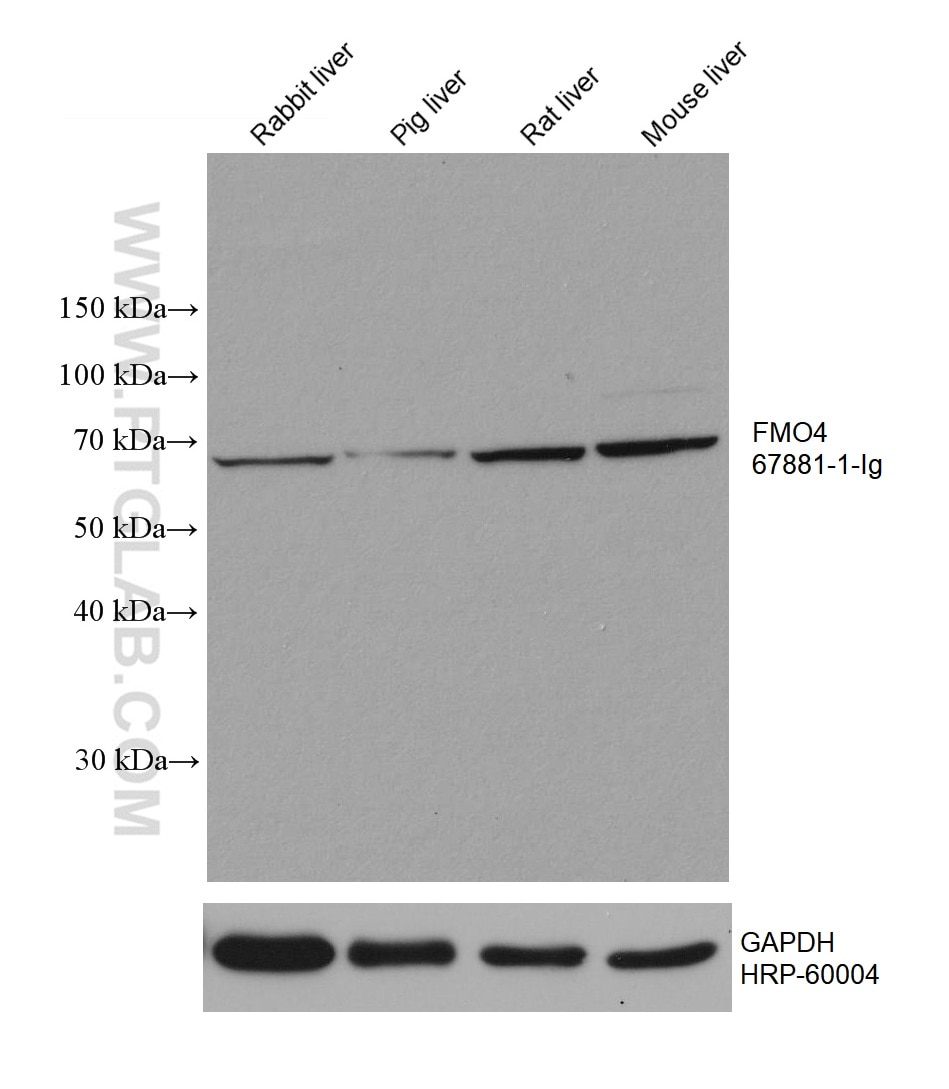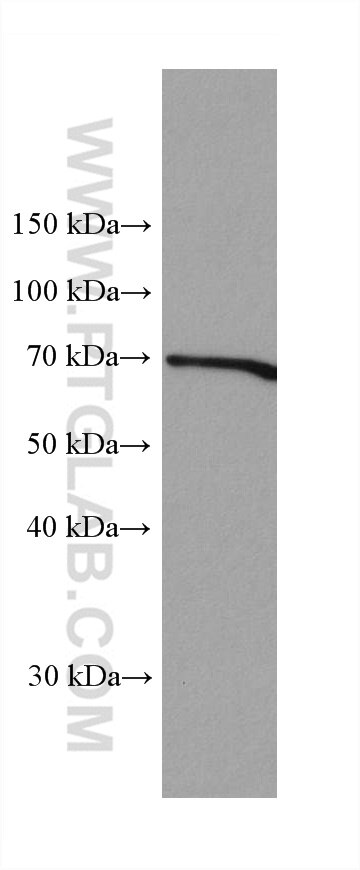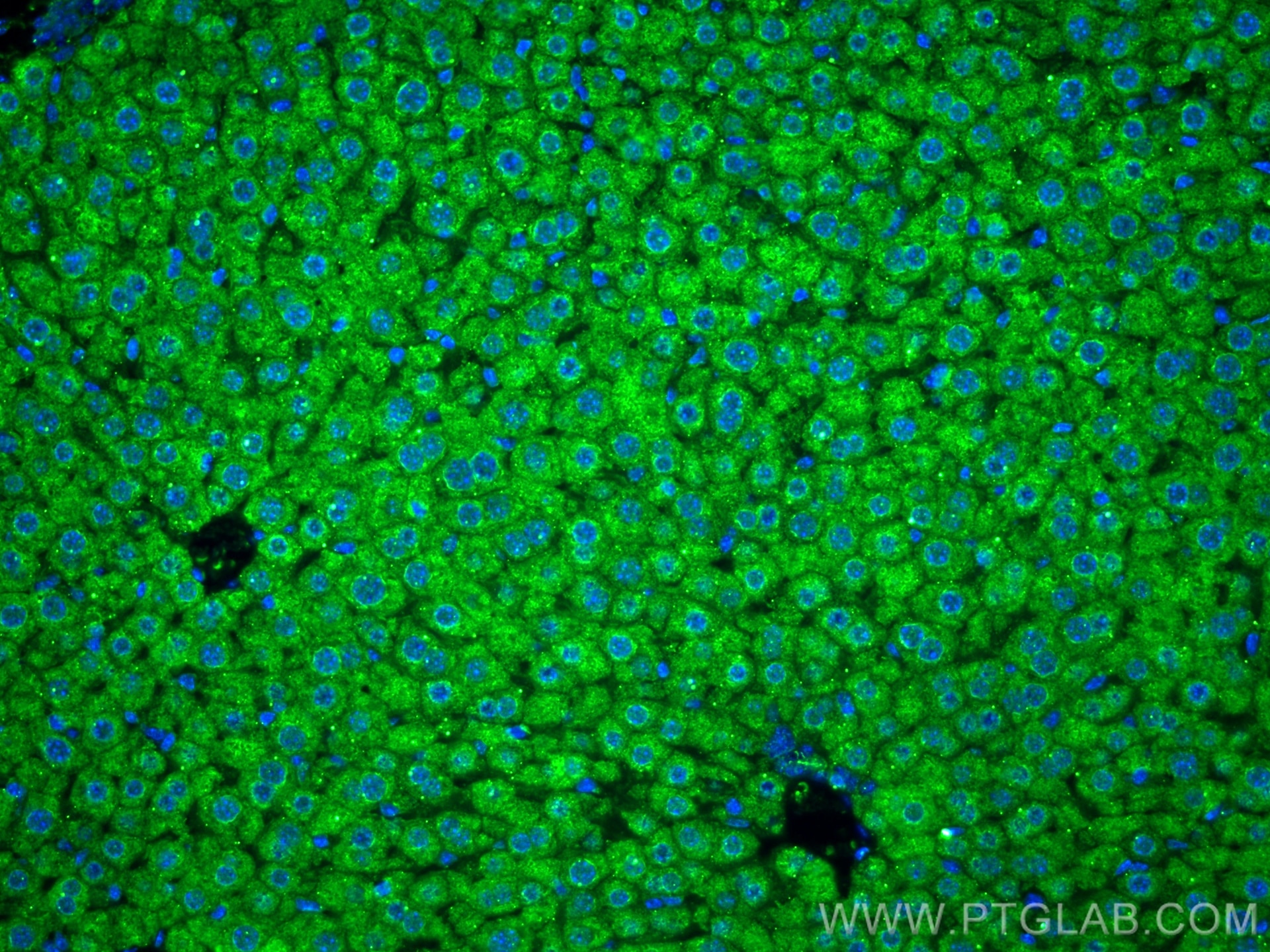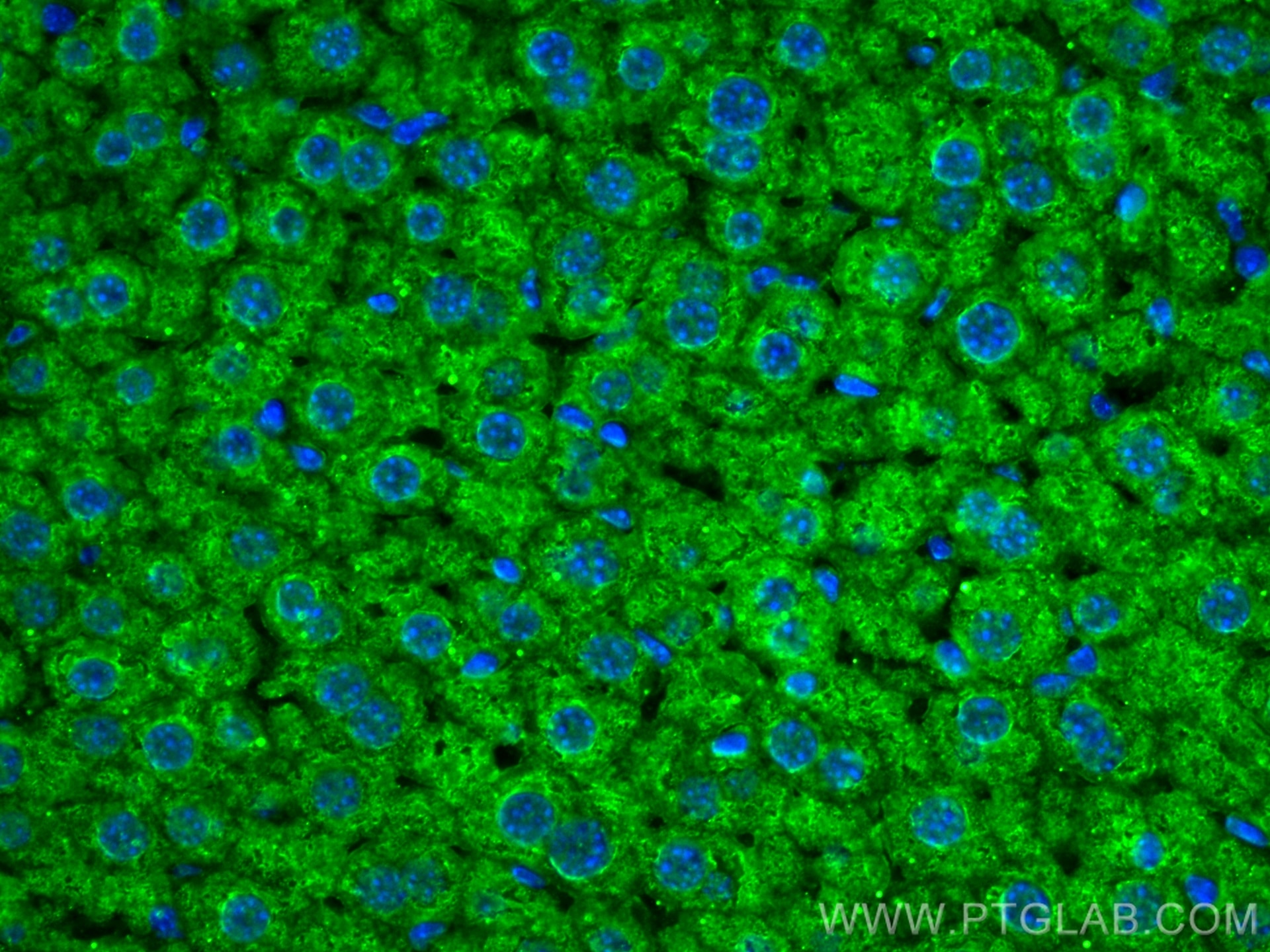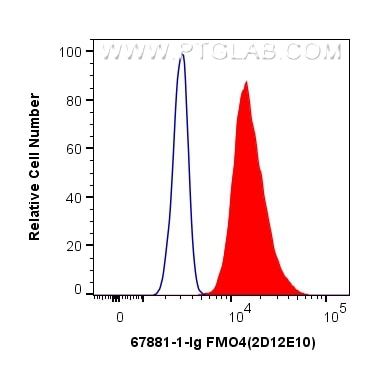Validation Data Gallery
Tested Applications
| Positive WB detected in | rabbit liver tissue, HuH-7 cells, pig liver tissue, rat liver tissue, mouse liver tissue |
| Positive IF-P detected in | mouse liver tissue |
| Positive FC (Intra) detected in | HuH-7 cells |
Recommended dilution
| Application | Dilution |
|---|---|
| Western Blot (WB) | WB : 1:5000-1:50000 |
| Immunofluorescence (IF)-P | IF-P : 1:200-1:800 |
| Flow Cytometry (FC) (INTRA) | FC (INTRA) : 0.40 ug per 10^6 cells in a 100 µl suspension |
| It is recommended that this reagent should be titrated in each testing system to obtain optimal results. | |
| Sample-dependent, Check data in validation data gallery. | |
Product Information
67881-1-Ig targets FMO4 in WB, IF-P, FC (Intra), ELISA applications and shows reactivity with Human, mouse, rat, rabbit, pig samples.
| Tested Reactivity | Human, mouse, rat, rabbit, pig |
| Host / Isotype | Mouse / IgG1 |
| Class | Monoclonal |
| Type | Antibody |
| Immunogen | FMO4 fusion protein Ag7935 相同性解析による交差性が予測される生物種 |
| Full Name | flavin containing monooxygenase 4 |
| Calculated molecular weight | 63 kDa |
| Observed molecular weight | 63 kDa |
| GenBank accession number | BC002780 |
| Gene Symbol | FMO4 |
| Gene ID (NCBI) | 2329 |
| RRID | AB_2918638 |
| Conjugate | Unconjugated |
| Form | Liquid |
| Purification Method | Protein G purification |
| UNIPROT ID | P31512 |
| Storage Buffer | PBS with 0.02% sodium azide and 50% glycerol pH 7.3. |
| Storage Conditions | Store at -20°C. Stable for one year after shipment. Aliquoting is unnecessary for -20oC storage. |
Protocols
| Product Specific Protocols | |
|---|---|
| WB protocol for FMO4 antibody 67881-1-Ig | Download protocol |
| IF protocol for FMO4 antibody 67881-1-Ig | Download protocol |
| FC protocol for FMO4 antibody 67881-1-Ig | Download protocol |
| Standard Protocols | |
|---|---|
| Click here to view our Standard Protocols |
